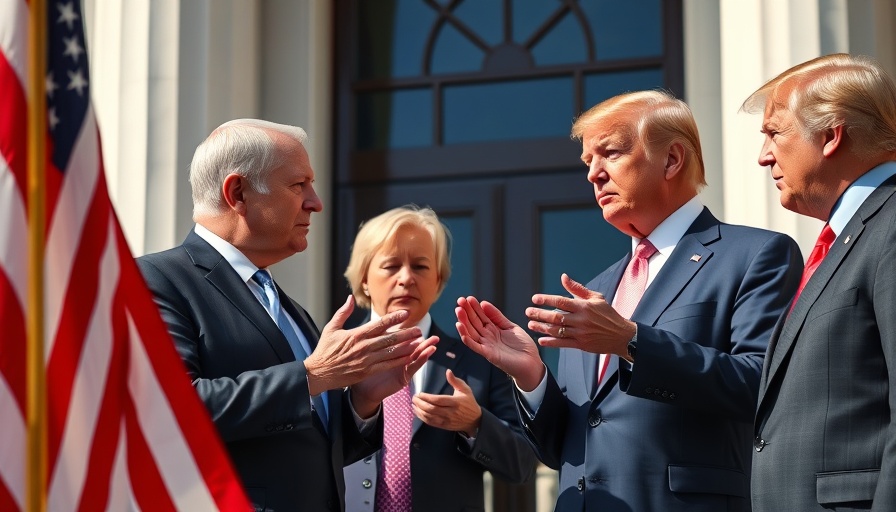
Trump’s Bold Claim: A Trade Deal with the EU Is Inevitable
Former President Donald Trump recently announced at a rally that the United States will "100%" reach a trade deal with the European Union. This statement echoes his administration’s earlier protective trade policies, including tariffs on foreign goods that were designed to strengthen American industry. Trump's declaration brings into focus the ongoing complexities of international trade amidst increasing global economic challenges.
The Significance of a US-EU Trade Deal
Establishing a trade deal with the EU could greatly benefit American businesses, particularly those in sectors like technology, agriculture, and manufacturing. If successful, this trade pact could pave the way for reduced tariffs, enhanced market access, and greater collaboration on regulatory standards. For Silicon Valley startups and Bay Area companies, an EU deal could mean wider opportunities for venture capital funding and strategic partnerships across the Atlantic.
Historical Context of US-EU Trade Relations
The U.S. and EU have a long history of trade agreements, with the Transatlantic Trade and Investment Partnership (TTIP) proposed during the Obama administration. However, negotiations stalled under Trump due to his focus on America First policies. The current climate presents a unique opportunity to revisit and re-negotiate these previous agreements within a new geopolitical framework.
Potential Challenges Ahead
As much as a trade deal may seem promising, it comes with its own set of challenges. Critics of Trump's trade policies have raised concerns over the implications of tariffs on American consumers and how they could impact inflation rates. The desire for job protection in local markets versus the need for global competitiveness will undoubtedly be hotly debated as negotiations progress.
Future Predictions: What Could a New Trade Agreement Look Like?
If a trade deal materializes, we can expect various outcomes for American businesses and consumers. It may usher in a new era of trade relations characterized by innovation and collaboration, especially in the tech sector, which relies heavily on international markets for talent and investment. Alternatively, a failure to establish such a deal could exacerbate supply chain disruptions and limit growth opportunities in affected sectors.
Local Impact on the Bay Area
For Bay Area businesses, especially those involved in the tech industry, the potential trade deal could mean significant economic growth. With the possibility of reduced import taxes on tech products and a more favorable international regulatory environment, companies in Silicon Valley may see increased demand both domestically and abroad. Additionally, as venture capital funding flows into cross-border collaborations, local entrepreneurs could benefit immensely.
Conclusion: Keep an Eye on Trade Developments
As negotiations for a US-EU trade deal advance, stakeholders across various sectors must stay informed. Understanding the implications and potential opportunities this may create for Bay Area businesses can empower decision-makers to navigate upcoming changes effectively. As Trump continues to push forward in this area, it's crucial for entrepreneurs and business leaders to prepare for a landscape that could present both unique challenges and unprecedented opportunities.
 Add Row
Add Row  Add
Add 



Write A Comment